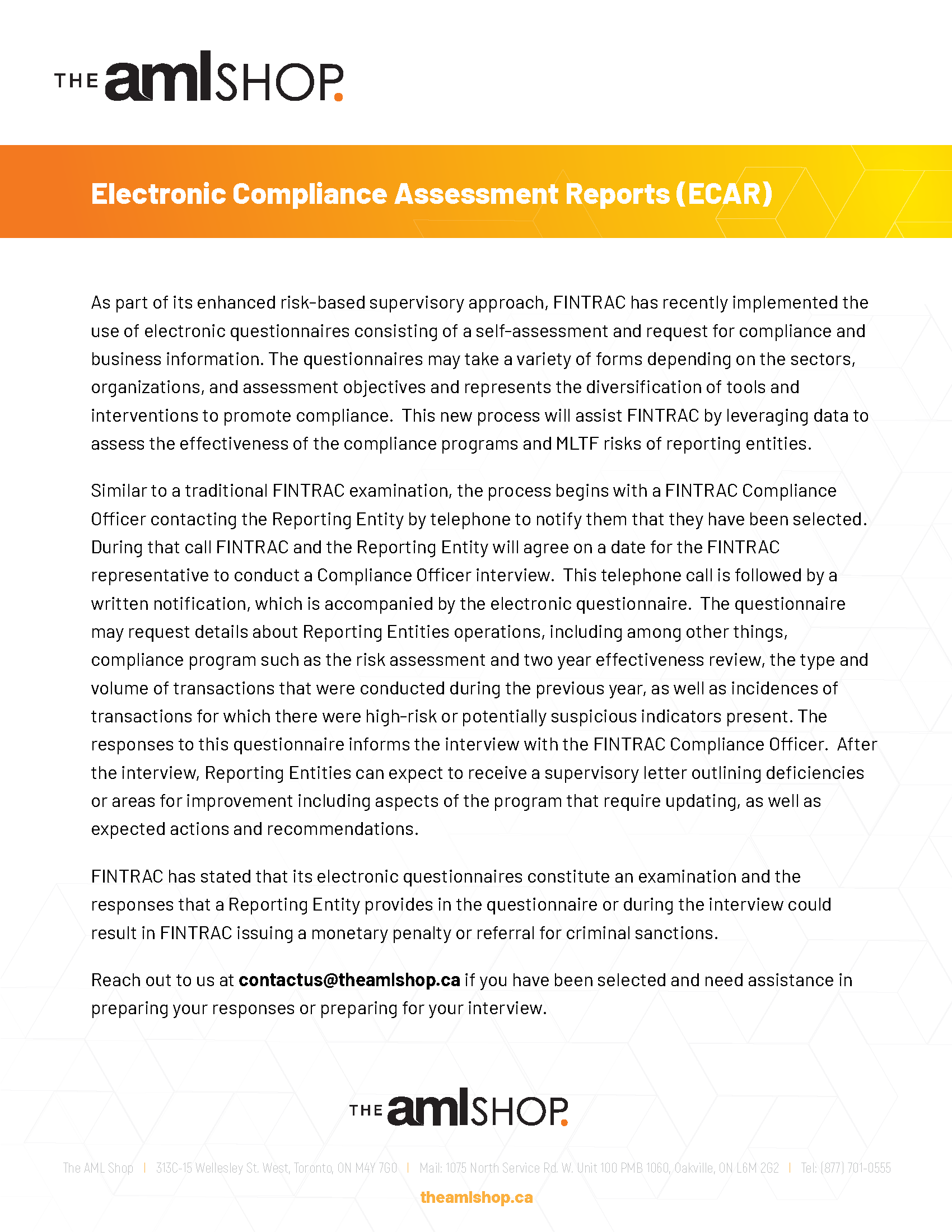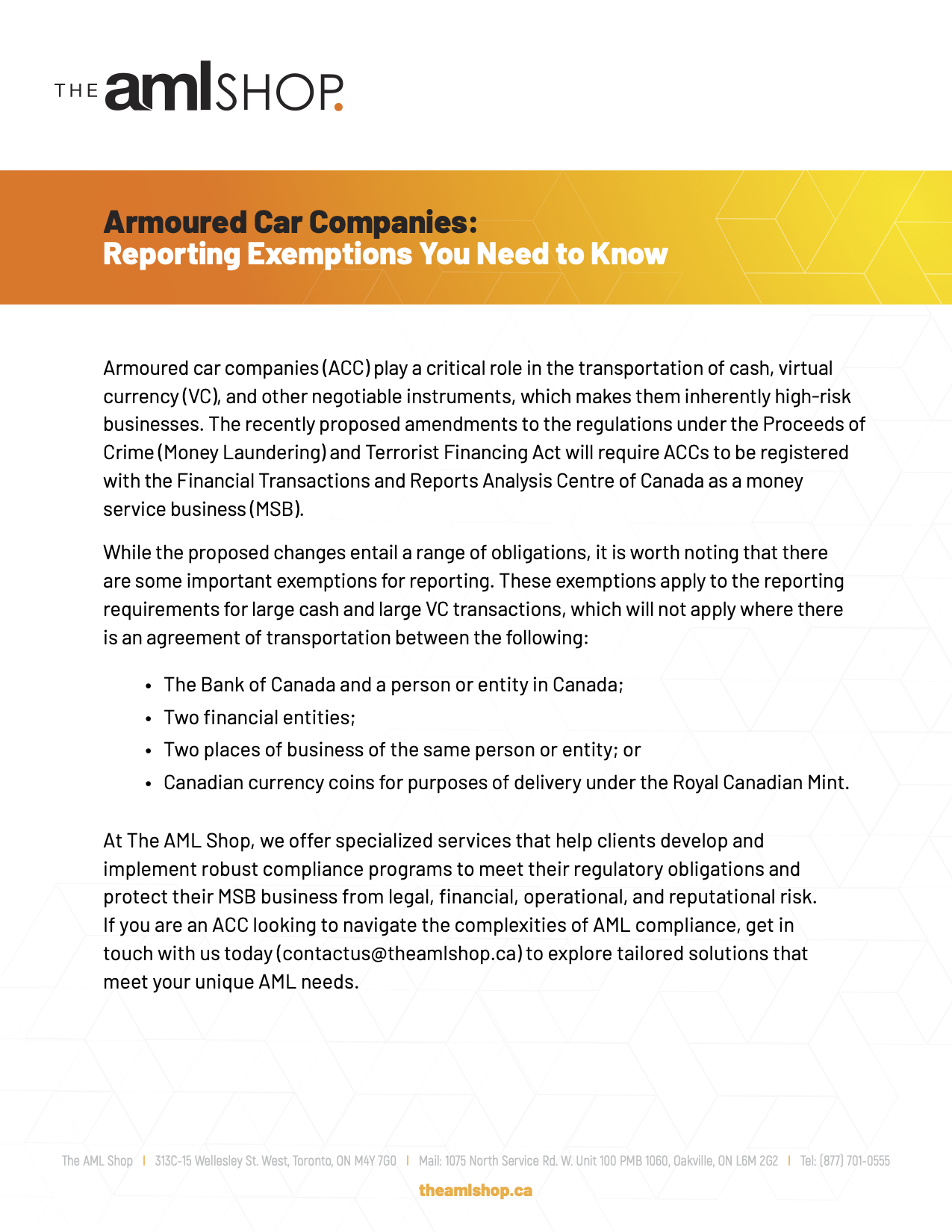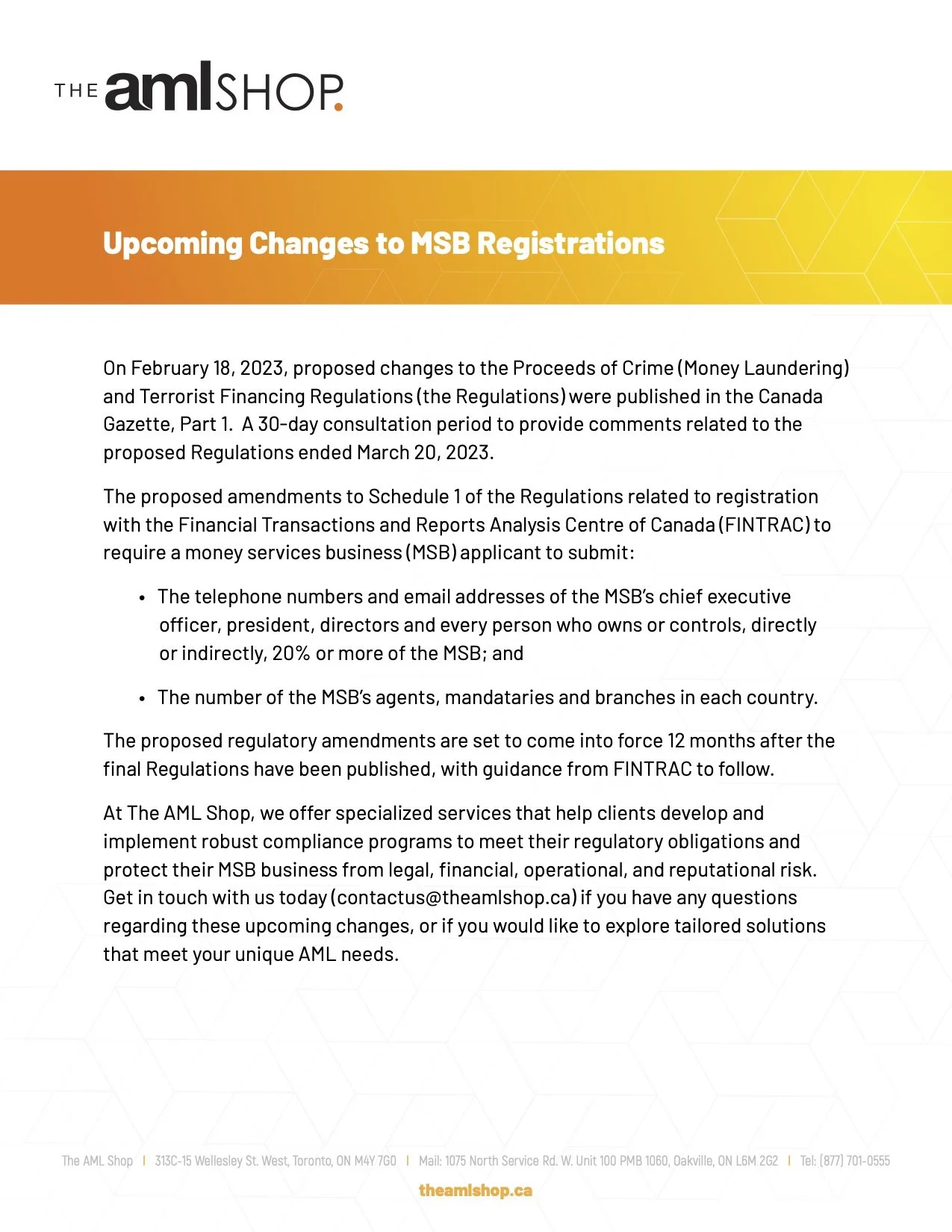The Bank of Canada (the “Bank”) has released new supervisory policies under the Retail Payments Activities Act (RPAA). These policies are the Bank of Canada’s way of communicating how they intend on enforcing the RPAA with regulated entities - known as Payment Services Providers, or PSPs.
We found a few of these policies to be important for payments businesses and have outlined them and our view of their implications below.
PRESCRIBED SUPERVISORY INFORMATION
The new policies set out the types of information supplied by a PSP to the Bank that cannot be used as evidence in certain court cases, and then information provided the Bank that payments companies can’t disclose further.
These new policies are important as they lead to more certainty about how information will flow between the Bank and PSPs. For more information, please contactus@theamlshop.ca
RECORD KEEPING
The record-keeping policy outlines what PSPs should retain to meet their obligations..
The list of record keeping requirements is extensive and includes these categories of records:
Operational Risk Management and Incident Response Requirements
Incident notification requirements
Holding funds
Other requirements to provide information to the banks include items such as annual reports, significant changes or new activity, registration changes, PSP information changes, change in prescribed information of a registration application, special audits information requests relating to assessment fees and requirements around end user funds.
As these new policies are highly intricate, our AML Experts are on Standby to help your business navigate within its specific need and context.
For further information about these new supervisory policies or anything to do with the Retail Payments Activities Act, Contact an AML expert today for advice.





